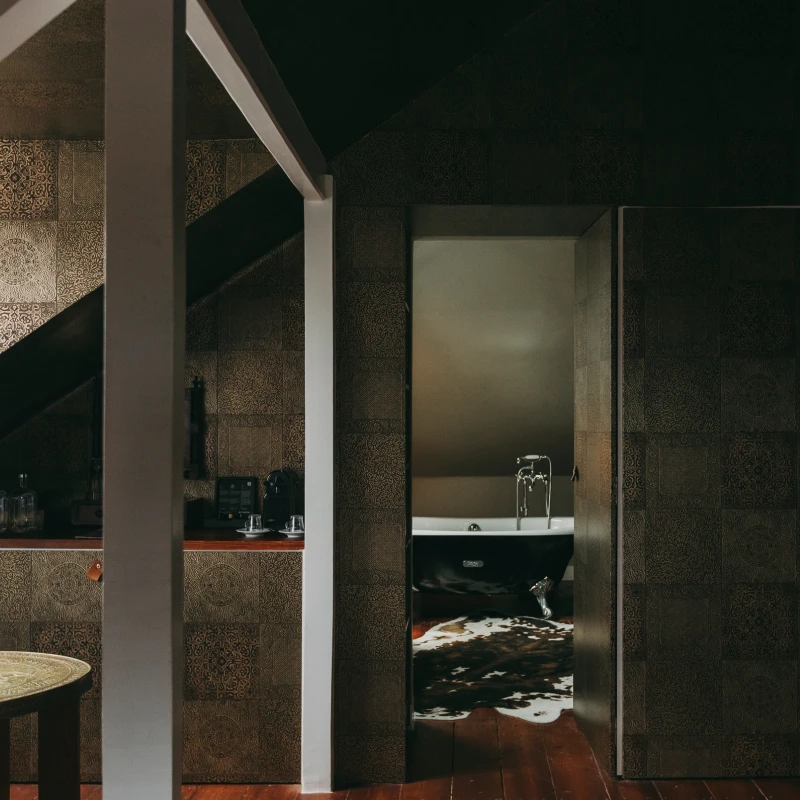Home > Dom Sebastião
Dom Sebastião
January, 1554 (Lisbon, Portugal) – August, 1578 (Alcácer Quibir, Morocco)
Let yourself be seduced by the charm of this room in dark brown and beige tones, the decor of which was inspired by King Sebastiao. Located on the top floor of one of the palaces, you will enjoy a breathtaking view of Lisbon without having to leave the comfort of your room. It is the only room in Torel Palace with a bathtub and the perfect place for a romantic stay.
The Premier With View – D. Sebastião offers 27 m² of distinctive elegance for up to two guests. This spacious room, in warm brown tones and with a unique architectural layout, features two single beds, a kitchenette, and refined decorative details, including a portrait of King Sebastião. A large window and a private balcony both frame charming views over the city, enhancing the sense of light and openness.
The glamorous bathroom, adorned with animal-skin-inspired tones, a beautiful rug, and a freestanding bathtub, provides an inviting space for relaxation. Amenities include a Delta coffee machine, minibar, TV, free Wi-Fi, air conditioning, hairdryer, and safe. Complimentary coffee and water are provided throughout your stay for a comfortable and memorable experience.
- Up to 2 People
- 27 m2
- 2 Single Beds
- Balcony
- City View
- Coffee Machine
- Mini Bar
- Television
- Free WiFi
- Air Conditioning
- Hairdryer
- Safe Box









In Honor of...
Dom Sebastião

Dom Sebastião I, known as the Desired (o Desejado), became king at just three years old and grew up surrounded by expectations of greatness. Deeply religious and raised with a strong sense of mission, he dreamed of reviving crusader ideals and expanding Portuguese influence through conquest.
In 1578, at the age of 24, he led a bold but ill-fated military expedition to Morocco, aiming to defend a local ally and spread Christianity. The campaign ended in disaster at the Battle of Alcácer Quibir, where Sebastião disappeared in the chaos — his body was never conclusively identified.
His death without heirs marked the beginning of a dynastic crisis and ultimately led to the Iberian Union, with Portugal falling under Spanish rule for 60 years. Yet, Dom Sebastião’s mysterious end sparked one of the most powerful myths in Portuguese culture: Sebastianism — the belief that the young king would one day return to save Portugal in its darkest hour.
He remains a symbol of youthful idealism, tragic destiny, and lost hope — a romantic figure whose legend still echoes through Portuguese identity and imagination.










